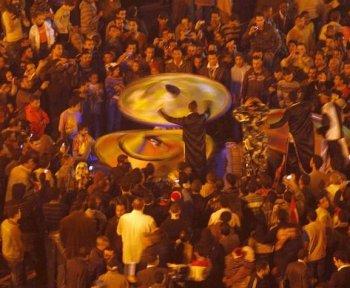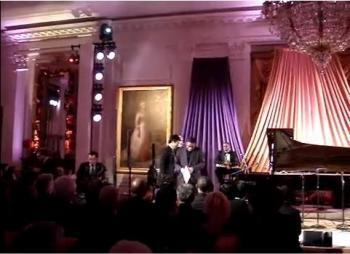Worrying about losing control in the demonstrations against “Tibetan Independence” and the boycotting of French retailer “Carrefour,” the Chinese communist authorities started cooling down the nationalist sentiments it deliberately roused before.
State-run media has now changed its tone from instigating hatred towards Western society to calling for “calm” and “rationality.” Experts believe it is a signal from the regime to cool down the inflammation, especially among many college students that had participated in previous demonstrations. It worried the situation could develop and trigger student democratic movements similar to the Tiananmen Square democratic movement in 1989.
Guo Quan, former associate professor of Nanjing Normal University, and Sun Wenguang, professor of Shandong University, said in interviews with The Epoch Times last Tuesday that orders have come down to ban college students from participating in demonstrations. However, they pointed out that though the Chinese Communist Party (CCP) wants to cool down the inflammation, fires in society have started and spread.
Guo Quan said that the Department of the Party Committees in his University has received a notice to strictly guard students from demonstrating. “All colleges in China have received the notice. Some sources revealed that regime leader Hu Jintao has ordered to stop students from joining protest activities. College students in Hefei have been controlled in their schools, not allowed to go out of school,” said Guo.
Sun Wenguang said students in his university are also prohibited from participating in demonstrations now.
Guo Quan revealed that college students’ boycott of Carrefour one week ago in cities like Hefei and Wuhan were instigated by the government and schools. “We have seen much behind the scenes. Student associations and organizations of the schools are involved. So students were absolutely incited by the authorities,” said Guo.
Guo Quan said the regime could not find a better way to counteract Western media’s criticism about its crime, so it incited nationalism to make use of the public voice to resist those criticisms. After it achieves its aim, it has to immediately extinguish the flame, because if the fires spread, the CCP itself will be burned.
Sun Wenguang indicated, “If the situation develops, the anti-CCP groups will also start demonstrations. So the CCP attempts to extinguish the fires, in case they will get out of control. In addition, the anniversary of the 1989 Tiananmen Square Massacre [June 4] is coming. If every one takes to the streets, the CCP will have big trouble.”
He continued, “Although the CCP wants to cool down the heat, fires in other places are burning.” Guo Quan pointed out, “China is like a bundle of dry wood. All fields are at the point of burning. Once nationalism is stirred up, the fires will spread to flame up the dry wood of other fields.”
Guo Quan disclosed the latest news from investors that the stock market fell down below 3,000 points on Tuesday. Investors in Shanxi province and others have started to smash local stock exchanges. Some investors have organized parades since last week.
“The regime cannot solve the problems of investors, farmers, and commodity prices, etc. So the fires will absolutely keep burning. If the stock market keeps falling, all flames in China will burn,” said Guo Quan.
Sun Wenguang thinks that the CCP brainwashed students with distorted nationalism through textbooks, media, literary and artistic works, etc. In the false environment created by the media, quite a number of students are still deceived. They think the Tibetans rioted and the West insults China. It is caused by their ignorance of history and lack of understanding to the facts, he says.


